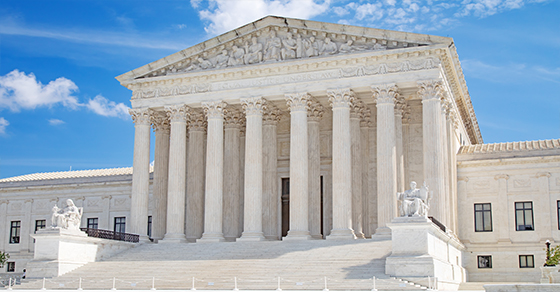What Happens When Courts Disagree on Late Tax Returns and Bankruptcy?
The Supreme Court recently declined to hear a case involving a taxpayer who filed for Chapter 7 bankruptcy, seeking to erase old tax debts. This decision means ongoing confusion about whether late-filed tax returns qualify for bankruptcy relief remains unresolved. This issue directly impacts taxpayers with financial struggles who need clarity on how to handle their tax debts.
Why This Case Matters
Bankruptcy law allows taxpayers to discharge certain debts, including taxes, under specific conditions. But the rules are complicated. According to the law, you must file a valid tax return to be eligible. The question is: what counts as a valid return if it’s filed late?
In this case, the taxpayer filed returns for some years after the IRS had already assessed their tax liabilities. This means the IRS had essentially created its own version of the returns, called substitute returns. Some courts say that if the IRS has already assessed taxes, a late-filed return doesn’t qualify. Others disagree.
The Court Split Explained
Federal courts are divided on how to handle late tax returns in bankruptcy:
- Strict Courts: Many courts, like the 9th Circuit, rule that once the IRS steps in and files a substitute return, any return filed later by the taxpayer doesn’t count as a “return” for discharging tax debt.
- Flexible Courts: The 8th Circuit takes a more lenient view. They believe that as long as the late return shows a sincere effort to comply with tax law, it should qualify.
This divide creates uncertainty for taxpayers who file bankruptcy in different parts of the country.
The Beard Test and Bankruptcy Law
The confusion largely stems from the Beard test, a four-step process used to determine if a document qualifies as a tax return. To count, the document must:
- Include enough information to calculate tax liability.
- Appear to be a tax return.
- Represent an honest attempt to follow tax laws.
- Be signed under penalty of perjury.
In 2005, Congress added more requirements, specifying that returns must meet applicable tax laws, including filing deadlines. Late returns that fail these criteria often don’t qualify.
What the Supreme Court’s Decision Means
By refusing to hear this case, the Supreme Court leaves taxpayers without nationwide clarity. Instead, taxpayers will face different rules depending on their location. Advocacy groups argue this unfairly penalizes lower-income individuals who rely on bankruptcy for a fresh start.
The Department of Justice, however, believes there is no real confusion, stating that courts generally agree that late returns filed after the IRS assesses taxes don’t discharge the debt.
For taxpayers, this means caution is critical. Filing tax returns on time is essential to maintaining eligibility for bankruptcy relief. If you’re unsure about how these rules apply to you, consult a qualified tax professional.
The Call for Action
Advocates and legal experts hope Congress will intervene to clarify the rules and create consistent outcomes for taxpayers. Until then, taxpayers should know that location significantly affects how courts handle late returns in bankruptcy.
This ongoing confusion highlights the need for careful tax planning, especially when dealing with financial challenges.
~*~*~*~
You can also post your project on our Marketplace and find the right professional for your needs. Our resource directory also offers valuable links to assist in managing various financial and legal aspects of a business or individual.








